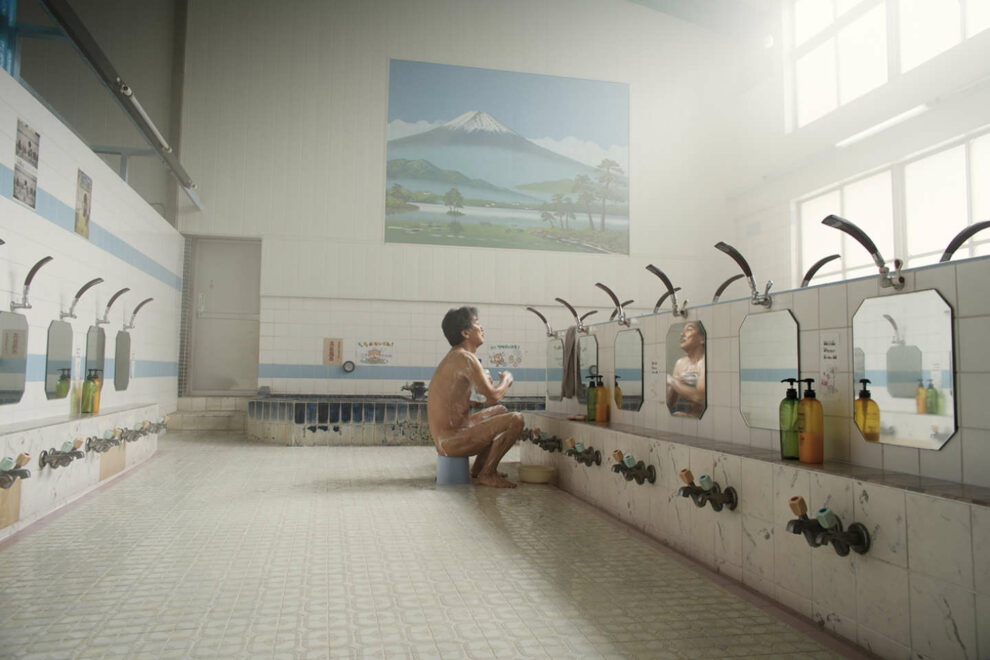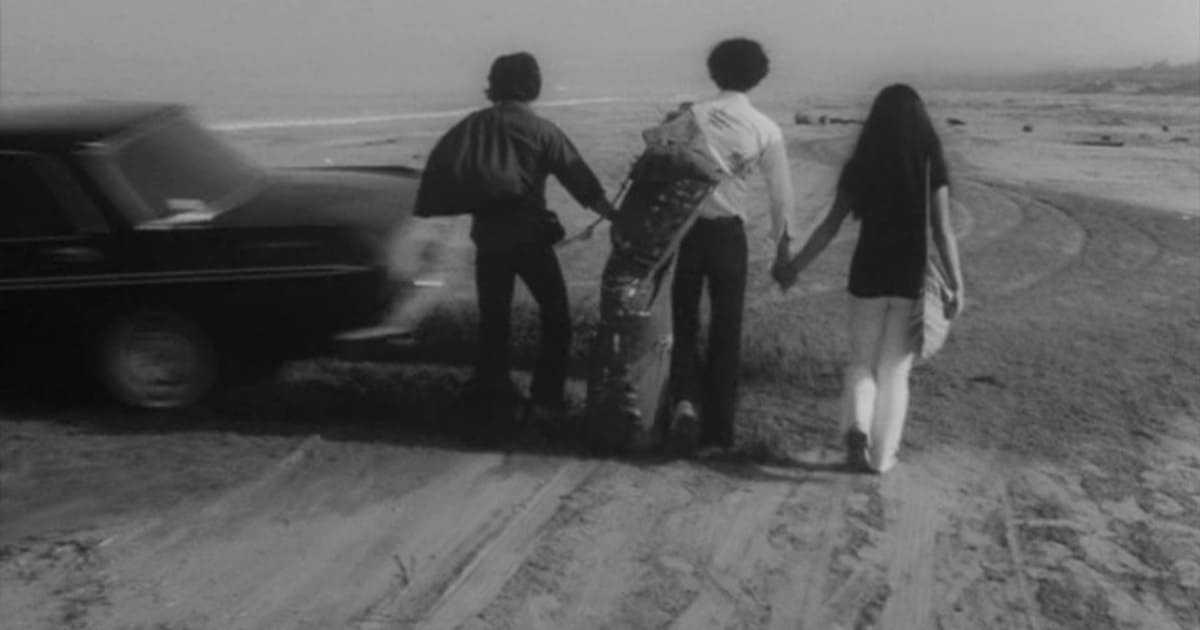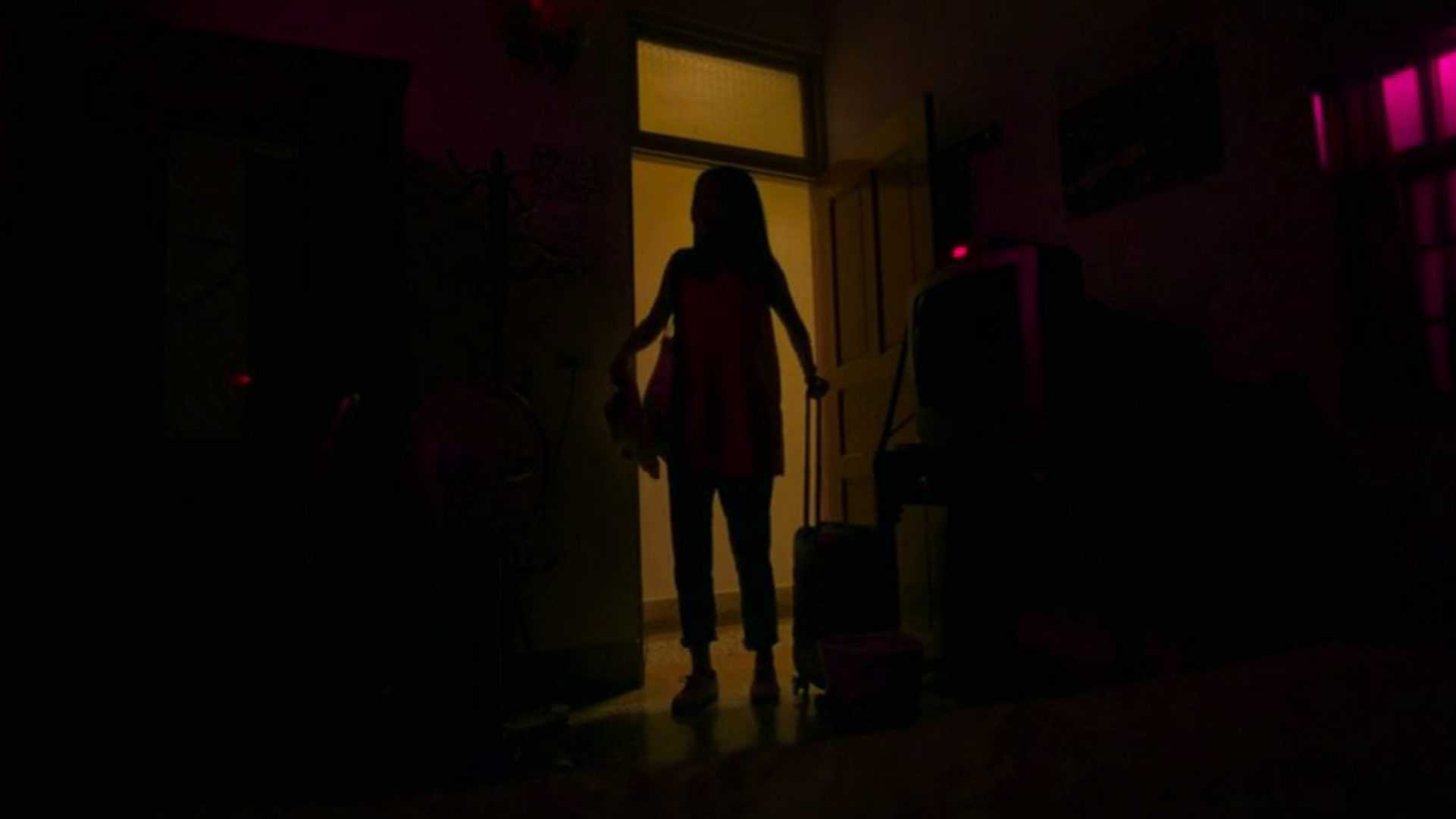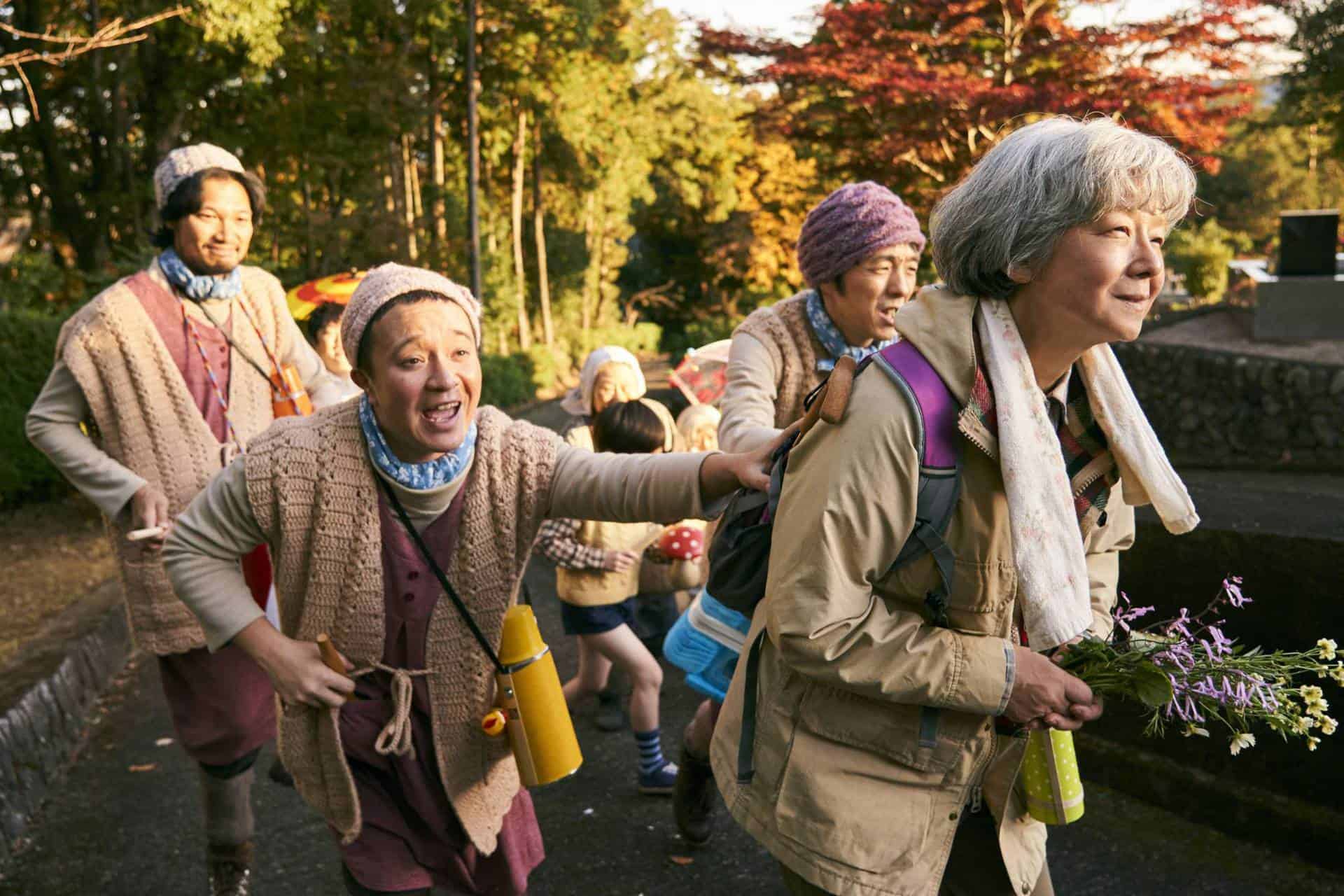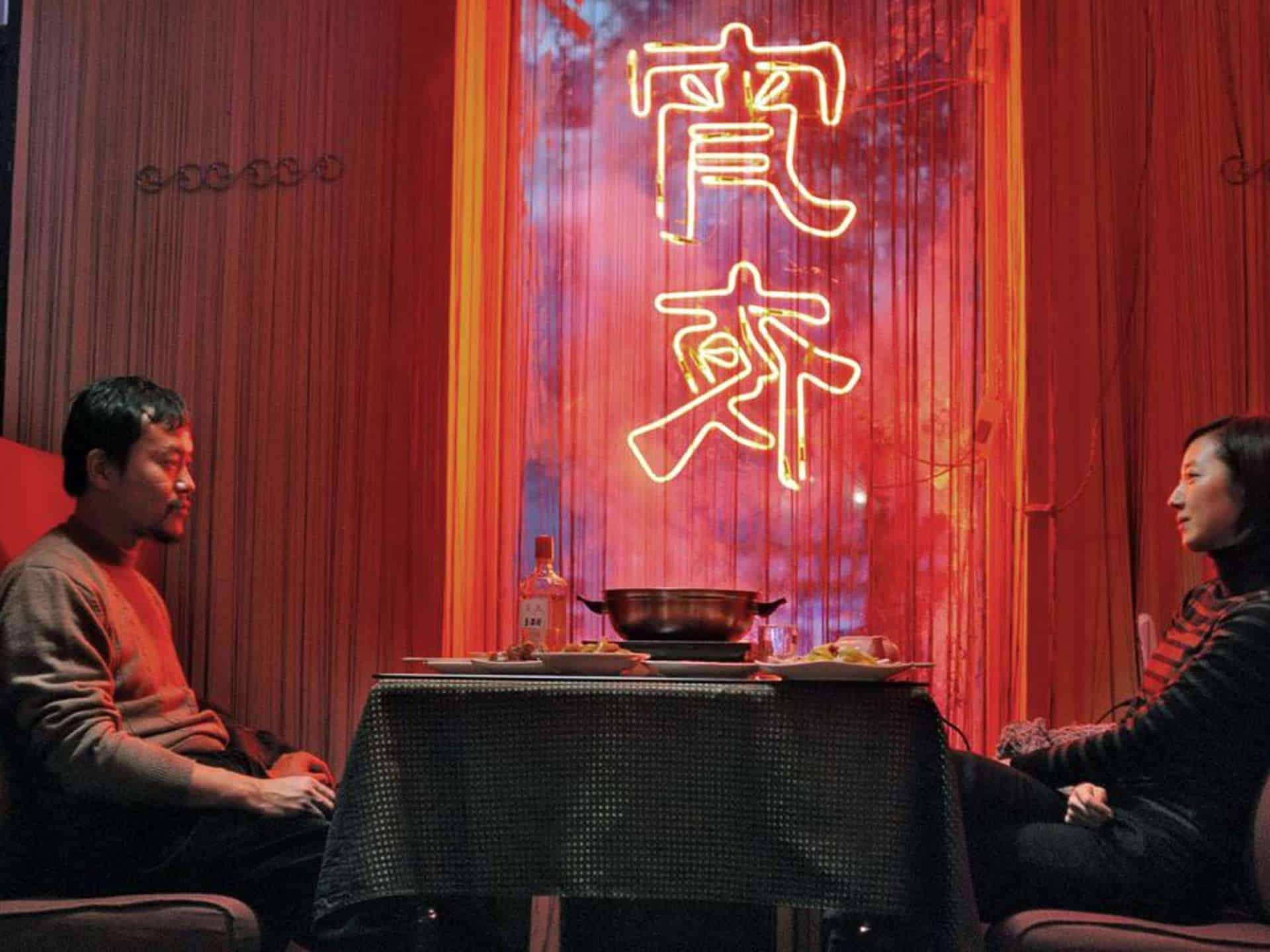by Paweł Mizgalewicz
If we assume that films, like people, can be called „half-Asian”, then „Perfect Days” could be placed in such category. Of course, it takes place in Japan. It seems to be based on Japanese stories, the characters are Japanese, all the actors are Japanese, and they speak in Japanese (not that there is a lot of talking at all). But you can probably also feel at various points that the film's director, cinematographer and the post-production crew were European. It is quite obviously a Tokyo Story, influenced by Yasujiro Ozu strongly (and proudly, as the German director always admitted that the protagonist's name, Hirayama, is taken straight from “An Autumn Afternoon”). It triumphs as a love letter to Ozu, and generally to what is often described as a wonder of Japanese culture. They're so humble! It's also a must-see for anyone fascinated with Tokyo, maintaining the “man, I love this city” vibe basically throughout the whole thing. But there is a reason why a love letter is something that's written from a distance – if you overdo the “love” part of the letter, it may feel idealized, romanticized, and, because of that, somehow less present, less real. And so, this great movie might be considered a bit light. Less a whole meal, and more of a dessert, although with a really intriguing, lingering aftertaste.
Perfect Days is screening at New Horizons

“Perfect Days” is a one-man-show of Koji Yakusho, and the movie's success is largely dependent on the incredible quality, range, depth and charisma of one of Japan's most renowned and most accomplished actors. We get to follow his Hirayama through his most normal days, mostly wordlessly. Hirayama gets up early, puts on his uniform, gets into his car, puts on another cassette tape with some American classics, and goes to work. His job is cleaning public toilets around Shibuya. The old man is good at his job – gets right to the point, does it quickly and precisely, and seems to be calmly satisfied with just doing his thing well. He is professional about what he has to do, but also takes time to smell the flowers. During the breaks, he sits in a park or walks around, watching the life of Tokyo around him and just enjoying how great the city is, and how great it is to live in this world overall, with moments of human and natural beauty all around you. Some stories happen, with strangers and relatives, although the movie has no real main arc – for the whole time, it remains a series of episodes, with only single suggestions appearing about Hirayama's past, his life situation, and really about the message of the whole thing. The personal moments of the story and the ending remain undeclared, with each viewer free to come up with their own summary and interpretation.
Check also this interview
To make all of this a captivating watch is a titanic achievement of character-building, and Yakusho's performance really is stuff of legends, the kind of role that you get all the awards for. No surprise he received an acting Palme d'Or at Cannes, and is sure to get many more mentions all over the world at the end of the year. We've seen him in all kinds of roles over decades – cops, killers, office workers, and of course as “the Japanese guy” in Western movies like “Babel” – but it still feels like the 67-year-old star was now able to put all of what he learned into one understated, yet so powerful, act of humanity on the screen.
It's also easy to see why the whole movie was rewarded by the Ecumenical Jury in France. “Perfect Days” is filled with a sense of dignity. In terms of the story, it's hard to even say why: we don't really see Hirayama put through any testing ordeals, like the poor are in films like “Shoplifters”, or, say, the donkey in the recent European “IO”. Mostly, Hirayama is “just” doing his job, which doesn't seem like the hardest one to get through with. Sure, cleaning toilets sounds harsh, but filmed by Wenders here, it's relatively peachy, as if the film was planned as a kind of advertisement for the development of the civilization in Tokyo. No one comes into these toilets and gasps with disgust: bah, one English-speaking visitor is downright amazed with the recently developed “smart glass” transparent walls. Hirayama seems to mostly clean some tissues and cans off the floor, and maybe brush some already good-looking ceramics. One of the cleaners does mention “a lot of puke” verbally, but we're spared any such sights, perhaps to maintain the extremely wholesome character of the movie.
Hirayama is not rich, but, for all we know, manages to make ends meet quite handily. In short, life is fine. Although so mundane at a glance, the film just feels life-affirming like very few others. Maybe because Hirayama is just so nice and humble, and his days so perfect. For Wenders, life is beautiful not in contrast to anything or despite anything: what's perfect is the normalcy, in the assumption that everyone can have a great life, because life of an everyman truly is great. Happiness is easy, and that gives us big comfort: we are being existentially hugged by Yakusho. His wise stare, quiet demeanor and charming smile make us believe it fully.
That's why the film might also be described as a promotion of not only Tokyo, of Japan, but what we often call the Eastern philosophy in general. Enjoying your own smallness and mediocrity, playing your little part in the city's and country's gigantic organism with pure joy. Is this the right message for this time, that's a matter of opinion. But “Perfect Days” do sell the point in a very alluring way, because it sells it not as an obligation, but pleasure… and as a boost. Hirayama has completely no ego – and exactly that makes him the most attractive man you've met. Some could say there's a bit of ideological irony here – keep your head down, man, you will be so cool! But for Hirayama the character, it works out without a doubt. He's normal, he's been through stuff, he's humble, he's Japanese… and he is so cool.
The success of “Perfect Days” might make it look like an ad for Japan for one more reason – if they made Wim Wenders a thing again, what cannot they do? This is a masterful collaboration of two veterans, but with very different careers at the moment. While Yakusho is arguably in his very prime (just his last five years include amazing roles in “The Third Murder”, “Sekigahara”, “The Blood of Wolves” and “Under the Open Sky”), Wenders has been long past his peak, still the most revered for the masterpieces he made in the 1980s, and he's made few really impactful movies in the last decades. Now, he's hit it out of the park with a critic-pleaser, but even more, crowd-pleaser. At the New Horizons, Poland's biggest film festival, the tickets and entrances for all six screenings have been disappearing from the system within seconds. If the film keeps making splashes like that, it might play some part in a cultural change. It will be a very small part in such a big world, but, hey – just doing your little job is perfect enough.


